Mothers march with a pen
20.11.19
Our education campaign launches at the London School of Economics (LSE).
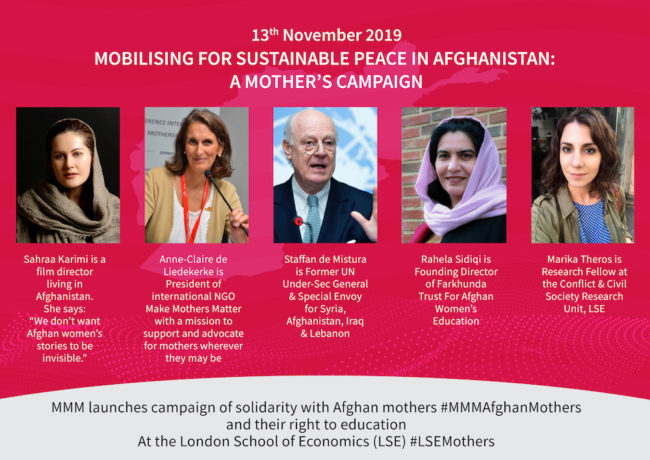
Our public conversation to raise awareness for women and girls’ right to education in Afghanistan got off to a dynamic start in London in November.
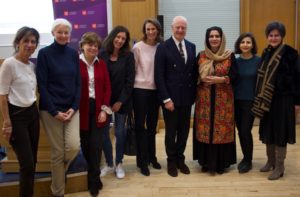 After months of preparation, the MMM team traveled to London for the campaign launch and were delighted to see the LSE’s Hong Kong Theatre packed with a keen and curious audience and an engaging panel of speakers chaired by Professor Mary Kaldor, Director of the Conflict and Civil Society Research Unit, Dept of International Development at the LSE.
After months of preparation, the MMM team traveled to London for the campaign launch and were delighted to see the LSE’s Hong Kong Theatre packed with a keen and curious audience and an engaging panel of speakers chaired by Professor Mary Kaldor, Director of the Conflict and Civil Society Research Unit, Dept of International Development at the LSE.
The panel included former Under-Secretary-General and UN special envoy for Syria, Afghanistan, Iraq and Lebanon Staffan de Mistura and Afghan filmmaker Sahraa Karimi, who flew in from Kabul especially for the event. Sahraa’s debut feature, Hava, Maryam, Ayesha, screened at the recent Venice Film festival, has received huge public interest, including a shout out by UNHCR ambassador Angelina Jolie. Shot entirely in Afghanistan, the film tackles the sensitive topics of love, marriage and motherhood.
‘‘Mobilising for sustainable peace in Afghanistan: a mothers’ campaign’ was the inspiration for the evening aimed at supporting Afghan mothers and their daughters calling for a continued right to education for themselves and their daughters and highlighting the importance of women’s and mothers’ voices at the peace negotiating table.
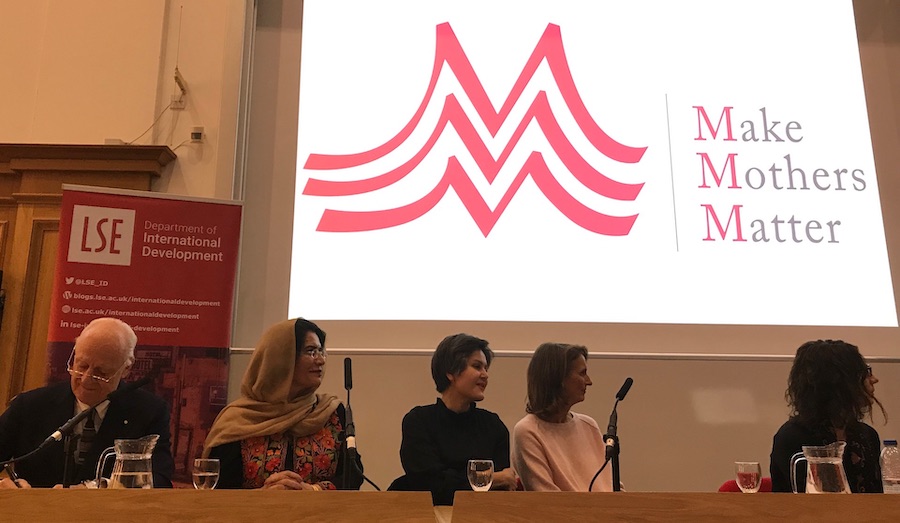
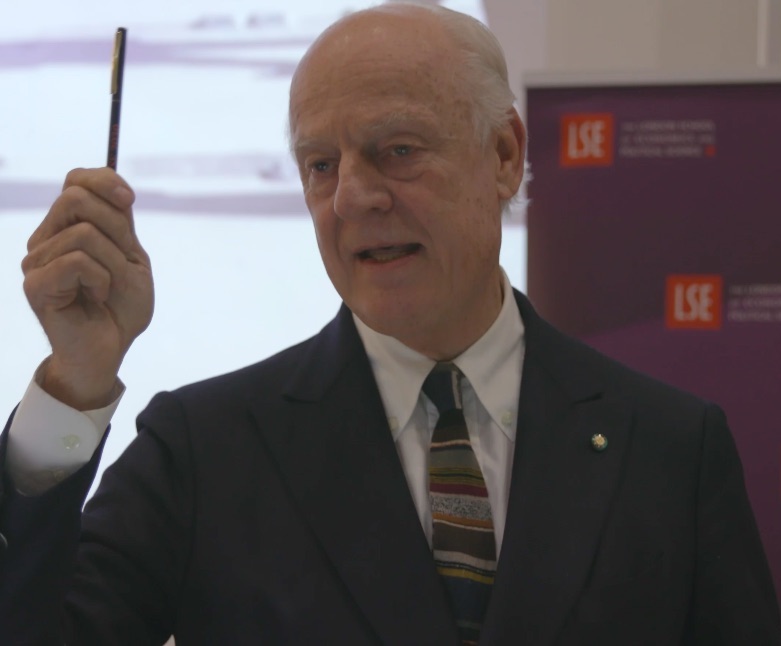 Staffan de Mistura raised his concerns at the changing political landscape in the country. “Our aim with this campaign,” he said, “is to break the silence and bring back attention to the importance of women… for peace. The clock is ticking”. He added: “My fear and many people’s fear, especially Afghan women’s… is the possibility of a return to the Middle Ages”. His comment: “Imagine a campaign that has women marching with a PEN”, drew an enthusiastic response from BBC Afghan TV journalist Sana Safi, who was in the audience. She responded with a tweet: “This is a brilliant idea and one that’s very much possible”.
Staffan de Mistura raised his concerns at the changing political landscape in the country. “Our aim with this campaign,” he said, “is to break the silence and bring back attention to the importance of women… for peace. The clock is ticking”. He added: “My fear and many people’s fear, especially Afghan women’s… is the possibility of a return to the Middle Ages”. His comment: “Imagine a campaign that has women marching with a PEN”, drew an enthusiastic response from BBC Afghan TV journalist Sana Safi, who was in the audience. She responded with a tweet: “This is a brilliant idea and one that’s very much possible”.
Watch Staffan de Mistura’s full speech here.
Marika Theros, Research Fellow at the Conflict and Civil Society Research Unit, set the scene by explaining the present-day reality in Afghanistan: “Today, Afghanistan is at a critical juncture. And there is both optimism and also serious concerns about the prospects for peace…people are yearning for peace, but one that is durable and safeguards the hard-won achievements of the last 17 years.“ She went on to explain: “Women are taking their rightful place in public spaces despite threats. They are policewomen, teachers, public officials, mayors and district governors, and entrepreneurs. For example, women account for 14 percent of university lecturers, and twenty-eight percent of Afghan Parliament members are women — a proportion higher than 67 percent of countries tracked by the World Bank, including France, Canada, Poland, Australia and the United States.”
Read Marika Theros’ full speech here.
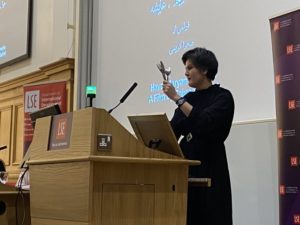 The compelling Sahraa Karimi spoke passionately about needing to keep the stories of Afghan women and girls visible, whilst recalling stories about her own life. Holding cutlery in one hand and a pen in the other, she told the audience that, unlike her mother’s generation, the new generation of Afghan women want to further their education, influence and voice.
The compelling Sahraa Karimi spoke passionately about needing to keep the stories of Afghan women and girls visible, whilst recalling stories about her own life. Holding cutlery in one hand and a pen in the other, she told the audience that, unlike her mother’s generation, the new generation of Afghan women want to further their education, influence and voice.
And she had this to say to a young Afghan student who asked whether she should return to Afghanistan to do her bit for her country: “I am a well-educated woman from Afghanistan. To those students wanting to help Afghanistan, I say please first finish your education.”
Watch Sahraa Karimi’s full speech here.
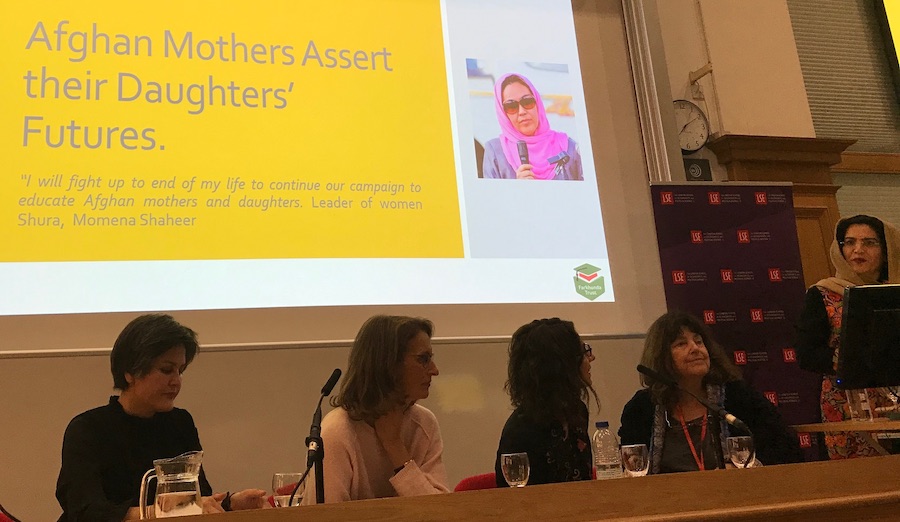 Rahela Sidiqi of the Farkhunda Trust for girl’s education presented strong evidence from within Afghanistan of mobilization by groups and associations. She emphasized: “We, the Afghan mothers, want to see inclusion and meaningful engagement of ourselves and our daughters in the development of our country”.
Rahela Sidiqi of the Farkhunda Trust for girl’s education presented strong evidence from within Afghanistan of mobilization by groups and associations. She emphasized: “We, the Afghan mothers, want to see inclusion and meaningful engagement of ourselves and our daughters in the development of our country”.
Watch Rahela Sidiqi’s full speech here.
Everyone agreed that if you educate women you educate nations.
Mothers around the world face a diverse range of challenges. We need mothers’ voices to be heard. So that children everywhere have peace and a good life.
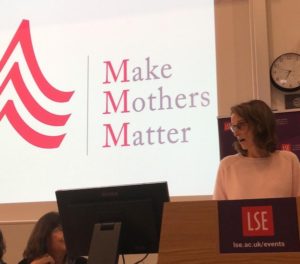 MMM President, Anne-Claire de Liedekerke put her full weight behind the campaign reiterating that Make Mothers Matter exists because it believes that mothers have to take part in shaping the decisions that affect their lives and that of their children. “It’s not that they should be given that power,” she said, “they have it and it is an extremely valuable resource. But they need to be given the opportunities for instance at the negotiating tables for peacemaking and peacekeeping and obviously access to education”. She added: “Standing with mothers for women’s education in Afghanistan means standing for women’s education everywhere”.
MMM President, Anne-Claire de Liedekerke put her full weight behind the campaign reiterating that Make Mothers Matter exists because it believes that mothers have to take part in shaping the decisions that affect their lives and that of their children. “It’s not that they should be given that power,” she said, “they have it and it is an extremely valuable resource. But they need to be given the opportunities for instance at the negotiating tables for peacemaking and peacekeeping and obviously access to education”. She added: “Standing with mothers for women’s education in Afghanistan means standing for women’s education everywhere”.
Watch Anne-Claire de Liedekerke’s full speech here.
In line with MMM’s mission to connect, facilitate and amplify the voices of mothers at the highest level, we have a plan for the campaign supported by our 40+ grassroots member associations around the world. Our aim in the first instance is to set up a mother’s network in Afghanistan followed by the formulation of a delegation consisting of two or three representative mothers from Afghanistan who will straddle the urban/ rural divide.
We propose taking the delegation to the EU in Brussels in order for them to have a platform to present their testimonials to decision-makers and policy heads emphasizing the importance of their rights at a critical time in their history. We aim to do the same at the United Nations (New York and Geneva) and at the Unesco in Paris.
For now, we ask that you support our campaign by spreading the word on social media channels @MMM4Mothers (twitter) and @makemothersmatter (Facebook) using #MMMAfghanMothers. We will populate our social platforms with news, views and posts of support.
You can also write to us at afghanmothers@makemothersmatter.org to voice your opinion or to let us know if you wish to get involved in the campaign.
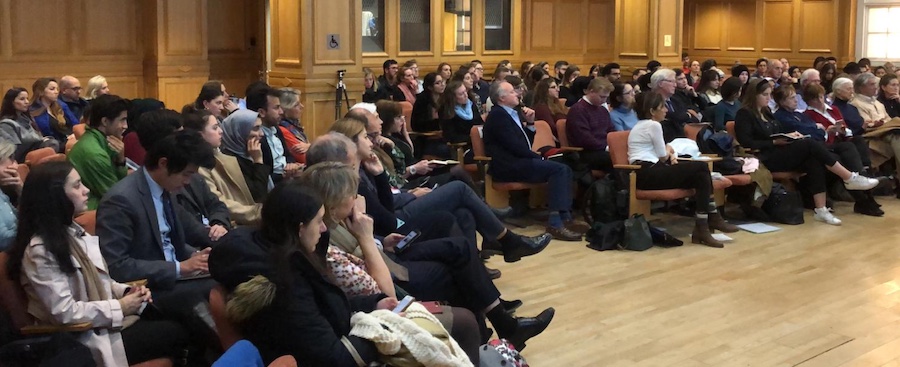
The New EU Gender Equality Roadmap : A Call for Inclusion of Mothers
04.03.25
The European Commission’s initiative on a new Gender Equality Roadmap post-2025, marks a significant step forward in addressing gender disparities across the European Union. Make Mothers Matter (MMM
Breaking the Cycle: Gender Equality as a Path to Better Mental Health
18.03.25
The Council of the European Union has taken a decisive step in recognising the vital connection between gender equality and mental health.
Europe Must Listen to Mothers: Our landmark report heads to the European Parliament
28.08.25
On 22 September 2025, the voices of mothers will take centre stage in Brussels. For the first time, Make Mothers Matter (MMM) will present its State of Motherhood in Europe








